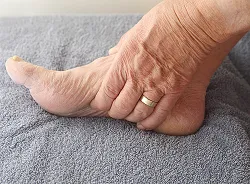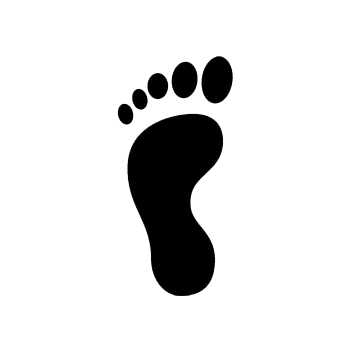Neuropathy In Mount Laurel, Philadelphia, PA

The peripheral nervous system contains 43 pairs of motor and sensory nerves that connect the brain and spinal cord (central nervous system) to the rest of the body. Peripheral nerves are responsible for movement and sensation. These nerves send signals from the central nervous system to the body.
When someone has been diagnosed with neuropathy, this means that there is damage to the peripheral nervous system. This nerve damage can cause numbness, tingling, weakness and even paralysis and is typically found in the hands and feet; however, these symptoms can occur in any part of the body. Peripheral neuropathy is often caused by diabetes, but infections, trauma, autoimmune diseases and toxin exposure can also cause this condition.
Symptoms
Those with peripheral neuropathy will experience varying degrees of nerve issues including burning or sharp pains, tingling and numbness in the feet and hands that can spread to the legs and arms, muscle weakness, and loss of coordination.
Risk Factors
Those with diabetes are at an increased risk of developing neuropathy, particularly those whose sugar levels are uncontrolled. Alcoholism, vitamin deficiencies, autoimmune diseases such as lupus, and infections such as shingles and Lyme disease can also increase you risk of peripheral neuropathy.
Treatment
Medication
Many forms of peripheral neuropathy can improve once the underlying condition is treated. The main goal of neuropathy treatment is to reduce pain symptoms. Some patients may find relief from over-the-counter Non-steroidal anti-inflammatory drug (NSAIDS) and anti-inflammatory medications while those with more severe symptoms may need a prescription pain medication, which often contains opioids. Anti-seizure medications like gabapentin may also be prescribed to alleviate nerve pain. For those with autoimmune disorder-related neuropathy, an immunosuppressant like prednisone may provide relief.
Therapy
Certain therapies like transcutaneous electrical nerve stimulation (TENS) may help reduce neuropathy symptoms. Electrodes are placed on the skin and an electric current is then released to parts of the body to block pain signals from reaching the brain. This treatment option is particularly appealing to patients who do not want to use medication to relieve their pain symptoms.

